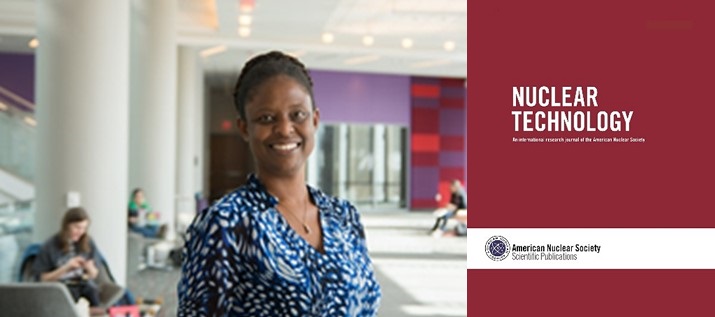The Organization of Economic, Cooperation and Development (OECD) Nuclear Energy Agency (NEA) organized a two-day workshop on the “Nuclear and Social Science Nexus: Challenges and Opportunities for Speaking Across the Disciplinary Divide”. This first of its kind event brought together over 100 participants, including social science and humanities researchers, academic nuclear engineers, practitioners, and policy makers. Selected papers from the workshop are published in the special issue of the nuclear engineering journal Nuclear Technology, volume 209, issue 7, September 2021.
Lisa Marshall, the inaugural Director of Outreach, Retention & Engagement for NC State’s Department of Nuclear Engineering contributed to this issue, “Geographies of Energy – a course in sociotechnical decision-making”. The abstract reads –
“Energy plays an increasingly vital role in society where questions around technologies, economics, quality of life, and policies are debated. The link of nuclear energy with the social sciences allows for a fuller examination of human-environment decision making. This paper comes out of the Organization for Economic Co-operation and Development (OECD) Nuclear Energy Agency (NEA) International Workshop on the Nuclear Social Science Nexus. The development and teaching of a Geographies of Energy course is provided as an example of a pedagogical method to understand the interconnectedness of science and social science. Students in the North Carolina State University China Study Abroad Program in Engineering, Science, Technology & Society (STS) and International Relations unpack the sociotechnical dimensions of resource extraction, energy production, consumption, and byproduct management. A complex network of resources, actors, implications, and outcomes arise, allowing for the study of place uniqueness as well as the connections and interactions between places—China, neighboring states, and international systems—and power technologies.”
And Dr. Verma, in the introductory article, describes the journal issue as –
“[A] feature of 13 papers authored by humanists and social scientists who, though each rooted in distinct and rich scholarly traditions, share with each other an interest in the nuclear energy sector. These scholars adopt an intellectually diverse set of theoretical and methodological lenses to examine the work of nuclear energy practitioners and policy makers.
The central aim of this special issue is to explore how research findings and insights from the humanities and social sciences can be used to shape and meaningfully inform the work of practitioners and policy makers in the nuclear energy sector and its corresponding areas of research and practice—all of which presently, in many ways, simultaneously face several challenges and opportunities and find themselves at a crossroads”.

